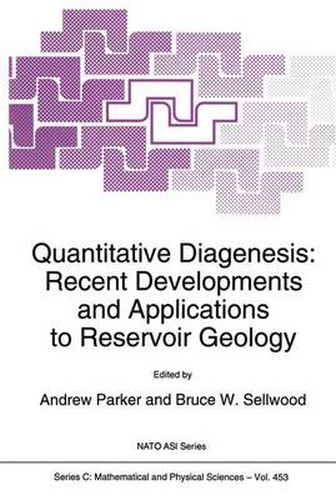Readings Newsletter
Become a Readings Member to make your shopping experience even easier.
Sign in or sign up for free!
You’re not far away from qualifying for FREE standard shipping within Australia
You’ve qualified for FREE standard shipping within Australia
The cart is loading…






This title is printed to order. This book may have been self-published. If so, we cannot guarantee the quality of the content. In the main most books will have gone through the editing process however some may not. We therefore suggest that you be aware of this before ordering this book. If in doubt check either the author or publisher’s details as we are unable to accept any returns unless they are faulty. Please contact us if you have any questions.
Reservoirs generally consist of sandstones or carbonates exhibiting heterogeneities caused by a wide range of factors. Some of these formed depositionally (e.g. as channels, palaeosols, clay seams or salts), others may be diagenetic in origin (e.g. carbonate or silica cemented zones, authigenic clays, karstic surfaces). The severity with which diagenesis affects rock systems results from the interplay between the diagenetic process itself and the timescale over which it operated.
The book provides a wide-ranging overview of diagenetic processes and responses in calcareous, argillaceous, arenaceous and carbon-rich (microbial and organic) sedimentary systems. It introduces diagenetic concepts, reviews existing knowledge, and shows how existing qualitative approaches might be developed in more quantitative ways. Several chapters consider mass balance calculations and the temporal and spatial aspects of diagenetic processes. It is unique, as a textbook, in providing such a breadth of diagenetic subject range and such depth of coverage in each topic. It provides a source reference for advanced students and professionals active in reservoir and aquifer studies.
$9.00 standard shipping within Australia
FREE standard shipping within Australia for orders over $100.00
Express & International shipping calculated at checkout
Stock availability can be subject to change without notice. We recommend calling the shop or contacting our online team to check availability of low stock items. Please see our Shopping Online page for more details.
This title is printed to order. This book may have been self-published. If so, we cannot guarantee the quality of the content. In the main most books will have gone through the editing process however some may not. We therefore suggest that you be aware of this before ordering this book. If in doubt check either the author or publisher’s details as we are unable to accept any returns unless they are faulty. Please contact us if you have any questions.
Reservoirs generally consist of sandstones or carbonates exhibiting heterogeneities caused by a wide range of factors. Some of these formed depositionally (e.g. as channels, palaeosols, clay seams or salts), others may be diagenetic in origin (e.g. carbonate or silica cemented zones, authigenic clays, karstic surfaces). The severity with which diagenesis affects rock systems results from the interplay between the diagenetic process itself and the timescale over which it operated.
The book provides a wide-ranging overview of diagenetic processes and responses in calcareous, argillaceous, arenaceous and carbon-rich (microbial and organic) sedimentary systems. It introduces diagenetic concepts, reviews existing knowledge, and shows how existing qualitative approaches might be developed in more quantitative ways. Several chapters consider mass balance calculations and the temporal and spatial aspects of diagenetic processes. It is unique, as a textbook, in providing such a breadth of diagenetic subject range and such depth of coverage in each topic. It provides a source reference for advanced students and professionals active in reservoir and aquifer studies.